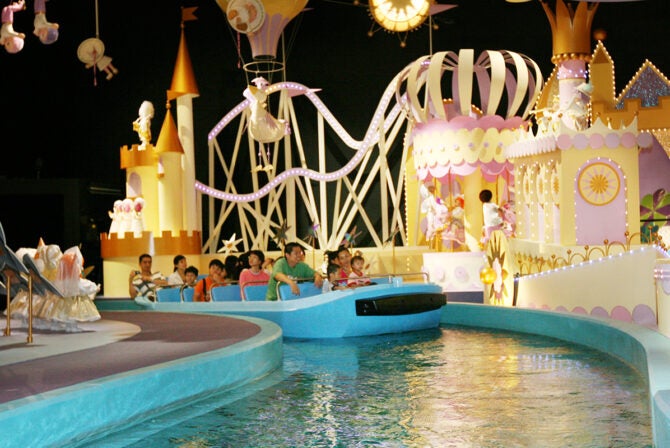My oldest daughter will be called to the Torah as a bat mitzvah this December. I have a bit of chip on my shoulder about it.
Actually, it’s not just her bat mitzvah that I’m cynical about, it’s the whole bat mitzvah “thing.” (I’m using “bat mitzvah” here to include bar mitzvahs too, of course.) As Patrick Aleph argued persuasively in Kveller last year, there are a lot of problems with this ceremony. Despite this, we’ve seen examples lately of young Jews who transform their b’nai mitzvah into something powerful. We just read last month about the young Jews in Chicago who are building a playground. There’s a young Jew at our synagogue who is riding his bicycle from Mexico to Canada to raise funds for the Sierra Club. But even without the grand, headline-making accomplishments, there is significant untapped potential for this rite of passage to be better reflective of the status-change it is intended to complement.
My daughter’s day school education has been, on the whole, truly wonderful. However, one constant struggle for her has been tefillah (daily prayers). It’s not that she has trouble learning them, it’s that she has trouble engaging with them. Her teachers have been very consistent in their reports that she doesn’t seem interested in participating–she doesn’t follow along in the siddur (prayer book), and is frequently just spacing out. Our daughter confirms that she finds tefillah to be awfully boring.
So a year ago, I intended to talk my daughter out of a traditional bat mitzvah.
Me: “It’s all about tefillah. It’s all the stuff that you can’t stand at school. Your Judaism is so much more than that and your personal passions are not really well reflected in a traditional bat mitzvah. Let’s work together to find a better ceremony for you. I’ll help you create an experience that includes your interests in sewing or acting or nature or puzzles, and integrates these into a meaningful articulation of what your Jewish empowerment and responsibility look like!”
Her: “What… what are you talking about? Are you saying that I’m not allowed to have a bat mitzvah?”
Me: “No, of course you’re allowed. But wouldn’t it be better to find something that’s less about praying and more about embracing the Jewish adulthood that you foresee for yourself?”
Her: “Umm… not really. I’d really just rather have a, you know, normal bat mitzvah.”
Me: “So you really want to do all that tefillah?”
Her: “I’ll be leading it, not just saying it. It’s a performance. I like performing! And besides, isn’t growing up about sometimes doing things that I don’t really like?”
OK, she had some good points. Tefillah is arguably a form of audience-participation theater. There’s a script: the siddur; there’s a costume: the tallit (prayer shawl); there are props and blocking and on Rosh Hashanah we even sell tickets. So being the sh’licha tzibur (service leader) would make my daughter… the lead actress. Maybe this wasn’t as inappropriate for her as I had thought. And in any case, her drasha (her speech) would always be an opportunity to infuse more meaning into the day.
Much to my wife’s relief, I totally failed in my efforts to derail my daughter’s bat mitzvah. She enrolled in our Berkeley synagogue’s b’nai mitzvah training program with the other preteen cadets. This summer she’s eagerly learning her Torah and
haftarah
at home and all the Shabbat prayers she doesn’t practice in school. Well, maybe not so “eagerly.” There has been some nagging. But when my wife and I are trying to coax our daughter to study, it’s helped a little that we have, “hey, this was your idea” to lean back on.
Meanwhile, I’m learning to live with the disappointment that my daughter’s rite of passage into Jewish adulthood will be just like mine and her mother’s, without hardly the slightest hint of innovation.
At least she’s agreed to sew her own tallit.
Like this post? Get the best of Kveller delivered straight to your inbox.







